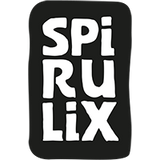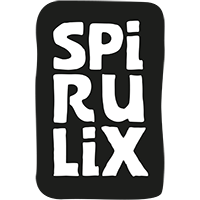Superfood Spirulina: Vitamins and nutrients from healthy algae
Spirulina, classified as a microalgae, but technically a cyanobacterium. In any case, the algae impresses with its particularly high nutrient and vital substance content and is therefore considered a superfood. But is spirulina really that good, or is it just another trend?
Spirulina as a vitamin source?
The coloring and antioxidants phycocyanin and chlorophyll create the striking color of the spirulina algae. However, the color is not the only thing that makes the microalgae so special. In contrast to macroalgae, which we mainly know from the Japanese around the corner, spirulina are so-called microalgae, which, as the name suggests, are tiny and cannot be seen with the naked eye. There are around 35 different types of Spirulina in total, the most well-known of which is Arthrospira platensis.
In general, cyanobacteria grow in freshwater and saltwater lakes and are native to Australia, Asia, Africa and Central America. Spirulina has been used as a food there for centuries. At Spirulix, we have set up the most sustainable algae farm in Austria, where we cultivate Spirulina algae under strict hygiene conditions and quality standards. The networking with a biogas plant and the regionality eliminates some prejudices about a bad ecological balance of spirulina and makes room for more important things.
Can spirulina actually be consumed as a source of vitamins and what exactly would that do for health?
Nutritional supplements for everyone
The microalgae consists of 60% high-quality, vegetable proteins, which the body can utilize very well. In addition, Spirulina contains a range of essential amino acids, vitamins (B1, B2, B3, A and E), minerals (magnesium and iron), and antioxidants (chlorophyll and phycocyanin). The regular intake of spirulina can also contribute to a balanced diet and help to cover the daily requirement of some nutrients.
The microalgae can thus be an essential component of a balanced diet and can prevent vital substance deficiencies and, if necessary, optimize the nutrient supply.
How should Spirulina be taken?
The recommended daily consumption of spirulina is 3-5 grams, depending on the activity level and the vital substance deficit. Spirulina powder, on the other hand, is ideal as a component in liquids such as juices, smoothies or smoothie bowls. Simply sprinkle our flakes over salads, bread or muesli, but you can consume them just like pellets. Due to the powder or flake form, nutrients and vitamins can already be absorbed through the oral mucous membranes and can therefore be utilized more quickly by the body.
At what time of the day (morning, noon, evening) the spirulina algae are taken does not play a major role. However, it is often recommended to take the microalgae before or after breakfast in order to provide the body with the necessary building blocks for daily processes in the morning.
Risks & side effects
Spirulina's side effects remain controversial to this day, and there are few scientific studies or research that provide clear results. However, no compromises should be made when it comes to the quality and origin of the Spirulina algae. If the alga grows in uncontrolled conditions, such as water with an increased mercury content, the alga absorbs it and can cause great damage in the body by eating it. Therefore, the same applies to spirulina algae: Buy local!
We at Spirulix from Austria have committed ourselves to these high quality standards and cultivate the small miracle algae on our own algae farm in the middle of Lower Austria. The harvest is done by hand in our family business and of course the highest quality and hygiene standards are observed. We have our products checked regularly by external laboratories so that we can also guarantee 100% that our algae do not contain any heavy metals or other toxins.
The product range extends from nutritional supplements in powder form to unique snack products such as spirulina crackers and chocolate , to a variety of mueslis . There is something for absolutely everyone.











